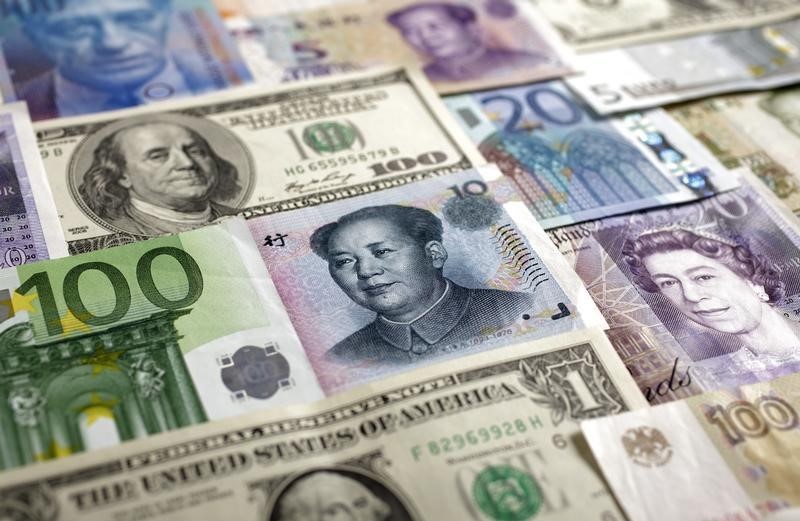By Anirban Nag
LONDON (Reuters) - The dollar rose against the safe-haven yen and Swiss franc on Monday, regaining some poise as European and Japanese stock markets started the week with gains and which underpinned risk sentiment.
Volumes, though, are expected to wane later in the session with the United States closed for a holiday. And with Chinese stocks ending in the red after a four-day holiday, most investors were cautious before the monthly update on China's economic health in the coming week, with August global trade data out on Tuesday unlikely to offer much solace.
At the G20 meeting at the weekend, policymakers agreed to oppose competitive devaluations and giving more transparency in communicating policy shifts, all of which gave investors little insight into future macro trends.
On Friday, a mixed U.S. jobs report did little to help investors determine when the Federal Reserve would finally hike interest rates.
The dollar was up 0.3 percent against the yen at 119.30, moving away from the day's low of 118.66 and taking back some of Friday's 1 percent tumble. It was up 0.2 percent against the Swiss franc at 0.9728.
The euro was steady at $1.1150, having gained in recent weeks as investors unwound euro-funded carry trades in which they borrowed euros to invest in high-yielding currencies.
"While there was some weakness in Chinese stocks, it wasn't a capitulation which many had feared. So investors are not as risk averse, with Japan's Nikkei closing with gains," said Jeremy Stretch, head of currency strategy at CIBC World Markets.
"So the dollar remains a buy as the non-farm payrolls was reasonably constructive."
U.S. nonfarm payrolls increased less than expected last month, marking a slowdown from July's upwardly revised gain, but the jobless rate dropped to its lowest in almost 7-1/2 years and wages accelerated.
"The problem is that these numbers are probably consistent with 2 to 2.5 percent GDP growth at best, good enough to begin the normalization of U.S. rates but not good enough to serve as a locomotive for the rest of the world," Steven Englander, global head of currency strategy at Citi, said in a note.
The figures came amid anxiety about falling global stocks markets and China's slowing economy, which have led investors to pare back bets that the Fed would raise interest rates as early as its meeting this month.
Data from the Commodity Futures Trading Commission released on Friday and Reuters calculations showed that speculators cut back further on bullish bets on the U.S. dollar in the week to Sept. 1 for the second straight week.

The options market also shows that more investors are betting on or hedging against further near-term yen strength.